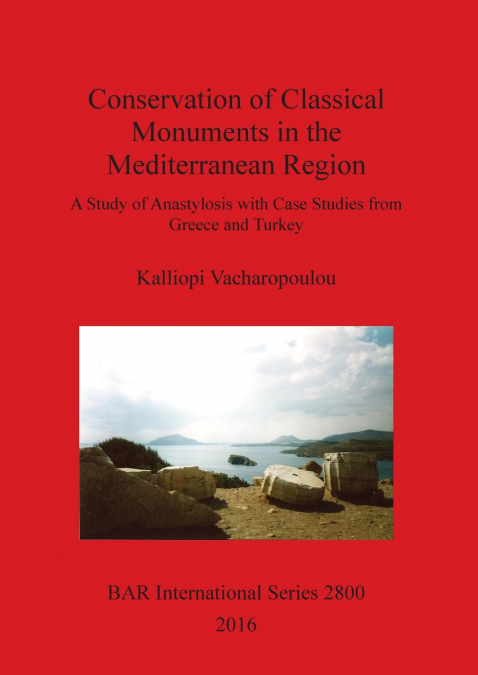
 Librería Desdémona
Librería Desdémona
 Librería Samer Atenea
Librería Samer Atenea
 Librería Aciertas (Toledo)
Librería Aciertas (Toledo)
 Kálamo Books
Kálamo Books
 Librería Perelló (Valencia)
Librería Perelló (Valencia)
 Librería Elías (Asturias)
Librería Elías (Asturias)
 Donde los libros
Donde los libros
 Librería Kolima (Madrid)
Librería Kolima (Madrid)
 Librería Proteo (Málaga)
Librería Proteo (Málaga)
This work studies the conservation of classical monuments in the Mediterranean region. It focuses on a specific method, anastylosis, and its application to classical monuments. The terminology, philosophy, theoretical principles and technical issues of anastylosis are explored within the wider context of cultural heritage management, through case studies from Greece and Turkey, a survey of anastylosis practitioners, and a short visitor survey. Problematic areas in decision-making, planning, implementation, and post-implementation are identified and analysed with reference to current and future practices. Building on this analysis, this work recognises the importance of anastylosis as a tool within the wider field of heritage conservation and management and offers a framework for planning, decision-making, implementation, and post-implementation. The book concludes by asserting the importance of anastylosis as a conservation method for ancient monuments, with significant interpretative potential in the management and presentation of archaeological sites.